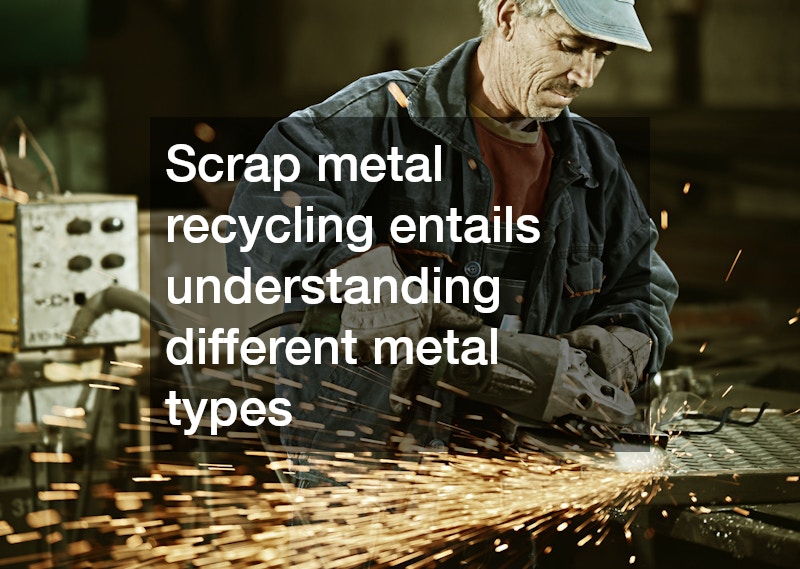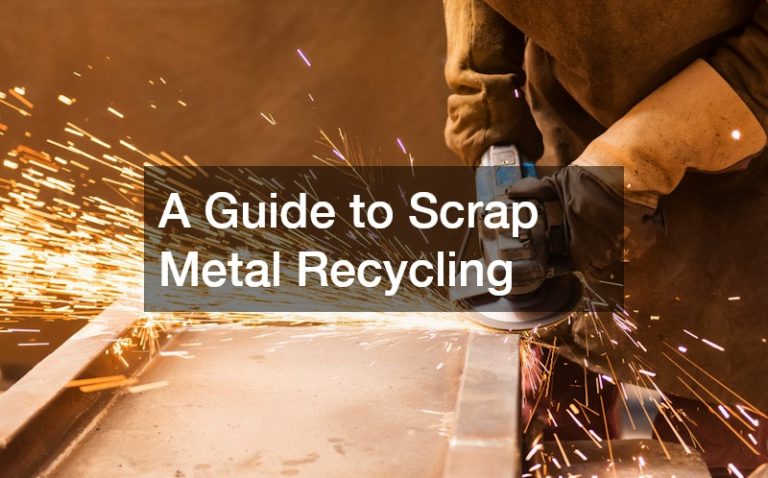Understanding Scrap Metal Recycling
Scrap metal recycling plays a crucial role in conserving natural resources, reducing greenhouse gas emissions, and minimizing landfill use. Getting started with scrap metal recycling is not only beneficial for the environment but can also be economically rewarding. In this article, we explore the different types of metals that can be recycled and provide guidance on how to start your metal recycling journey.
What Types of Metals Can Be Recycled?
Ferrous Metals
Ferrous metals are metals that contain iron, such as steel and cast iron, known for their magnetic properties and durability. The recycling process for ferrous metals involves collecting, shredding, and melting them down before being repurposed into new products.
Efficient recycling of ferrous metals significantly reduces the need for new iron ore extraction, saving energy and reducing pollution.
Even though ferrous metals are abundant, the recycling process enhances the metal’s purity and quality, thus providing high-grade material for manufacturing. They’re also widely used in the construction, automotive, and machinery industries, which makes their recycling economically viable due to constant high demand. An interesting fact is that recycling a ton of steel conserves 2,500 pounds of iron ore, 1,400 pounds of coal, and 120 pounds of limestone.
The collection of ferrous metal scrap is facilitated by its considerable weight and magnetic properties, making it easily identifiable. Many individuals and businesses now participate in sourcing, separating, and transporting ferrous scrap to recycling facilities. Knowledge about local scrapyards that offer competitive rates can further incentivize scrap collectors.
Non-Ferrous Metals
Non-ferrous metals, such as aluminum, copper, and brass, are valued in recycling due to their lack of rusting and higher market value. These metals don’t degrade during the recycling process, allowing for infinite recycling possibilities without losing their properties. This capability makes the recycling of non-ferrous metals extremely important for sustainable resource use.
Recycling non-ferrous metals helps reduce the environmental impact of mining and processing new metals from ores. The efficiency of this process is such that recycling aluminum, for example, saves up to 95% of the energy required to produce it from raw materials. The increased demand for these metals in industries like electronics and transportation underscores the importance of a strong recycling infrastructure.
The collection and sorting of non-ferrous metals typically rely on manual separation or advanced techniques like eddy current separation. This ensures the metals maintain their purity, which is crucial for achieving optimal recycling outcomes. Participating in local recycling programs or finding reputable buyers can provide lucrative opportunities for individuals involved in scrap metal recycling activities.
Other Recyclable Metals
Beyond ferrous and non-ferrous metals, there are other lesser-known metals that can be effectively recycled, such as zinc, lead, and nickel. These metals require specific processes to be reintroduced into the manufacturing cycle due to their unique properties. Understanding the nuances of recycling these metals can open new avenues for environmental efforts and economic gain.
For instance, recycling lead is integral to managing waste from lead-acid batteries, which are common in many vehicles and backup power supplies. Proper recycling of these materials helps prevent harmful environmental contamination and allows for the reuse of valuable resources. Additionally, niche markets exist for metals like tungsten and cobalt, driven by high-tech industries that demand sustainable practices.
Effective processing of these metals often involves specialized techniques, such as hydrometallurgy or pyrometallurgy, to recover the useable materials. Increased awareness and knowledge can encourage more individuals and businesses to participate in the recycling of these lesser-known metals. Collaborating with specialized recycling centers that handle these metals ensures compliance with environmental standards and maximizes resource recovery.
How to Start Recycling Scrap Metal
Gathering and Identifying Metals
The first step in scrap metal recycling is to gather and accurately identify the different metals to be processed. Simple tools like magnets and metallic testers can help in distinguishing ferrous from non-ferrous metals. Proper identification is crucial for sorting and ensuring the profitability of the recycling activity.
Starting a metal collection involves seeking out reliable sources, such as construction sites, old appliances, and community recycling events. Given the variety of sources, it’s important to establish a systematic method for collection and categorization. Abiding by local regulations and guidelines ensures that the collection process remains both legal and efficient.
Individuals engaging in metal recycling can also benefit from forming partnerships with businesses that regularly dispose of metal waste. Networking with industry contacts can provide steady access to scrap, which is vital for maintaining consistent recycling operations. Over time, this practice not only aids in promoting sustainability but also helps form a steady income stream for experienced recyclers.
Tools and Equipment Needed
Recycling scrap metal requires essential tools and equipment to carry out activities efficiently and safely. Basic tools include hammers, screwdrivers, and saws for dismantling larger metal objects into manageable pieces. Safety gear, such as gloves, goggles, and protective clothing, is crucial to protect against sharp edges and metal shards during the processing.
Scrap metal recycling entails understanding different metal types, acquiring the right tools, and finding reliable buyers or recycling centers. Each step contributes to conserving resources, reducing environmental impact, and promoting a sustainable industry. By taking initiative in metal recycling, individuals not only receive economic benefits but also play a significant role in protecting the planet for future generations.
.





